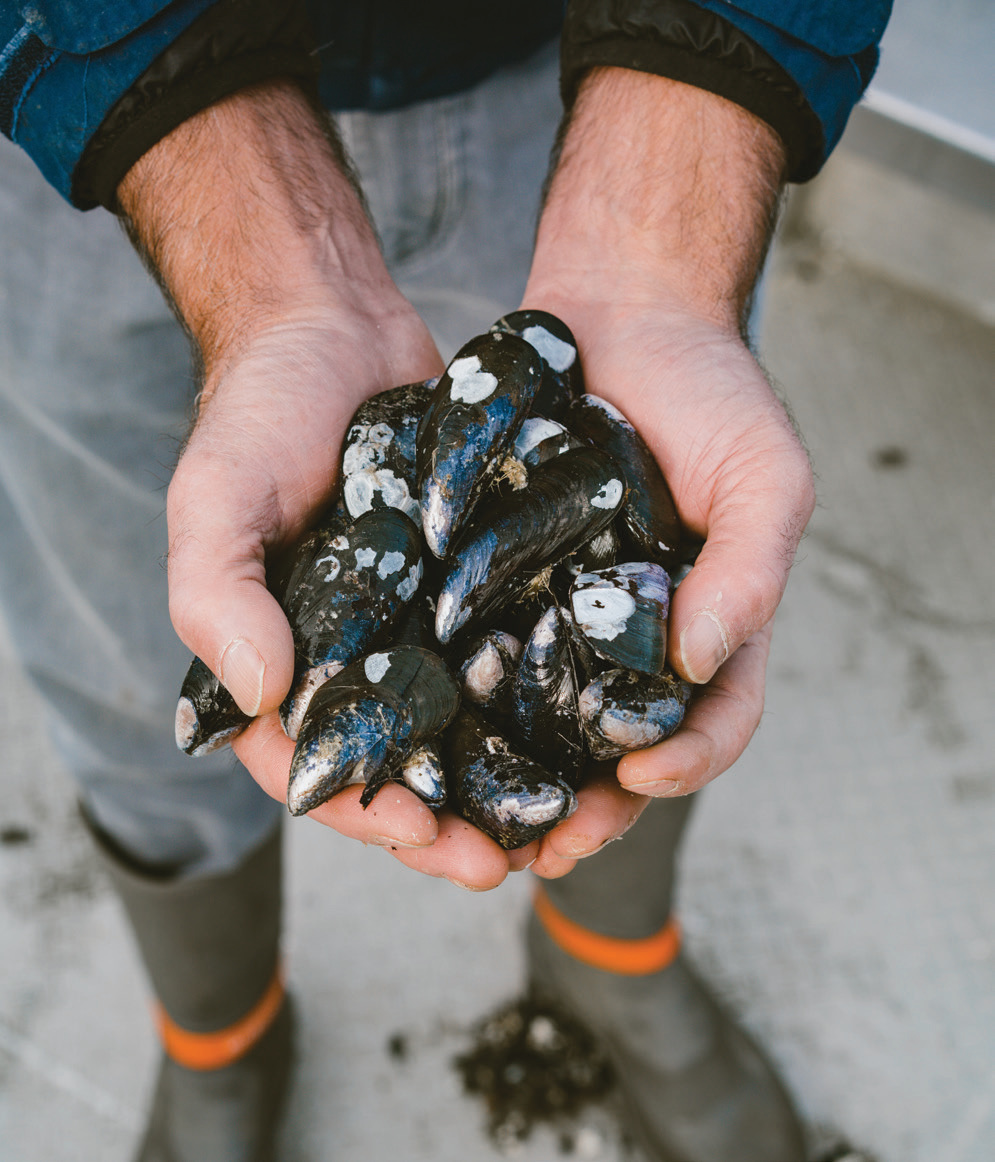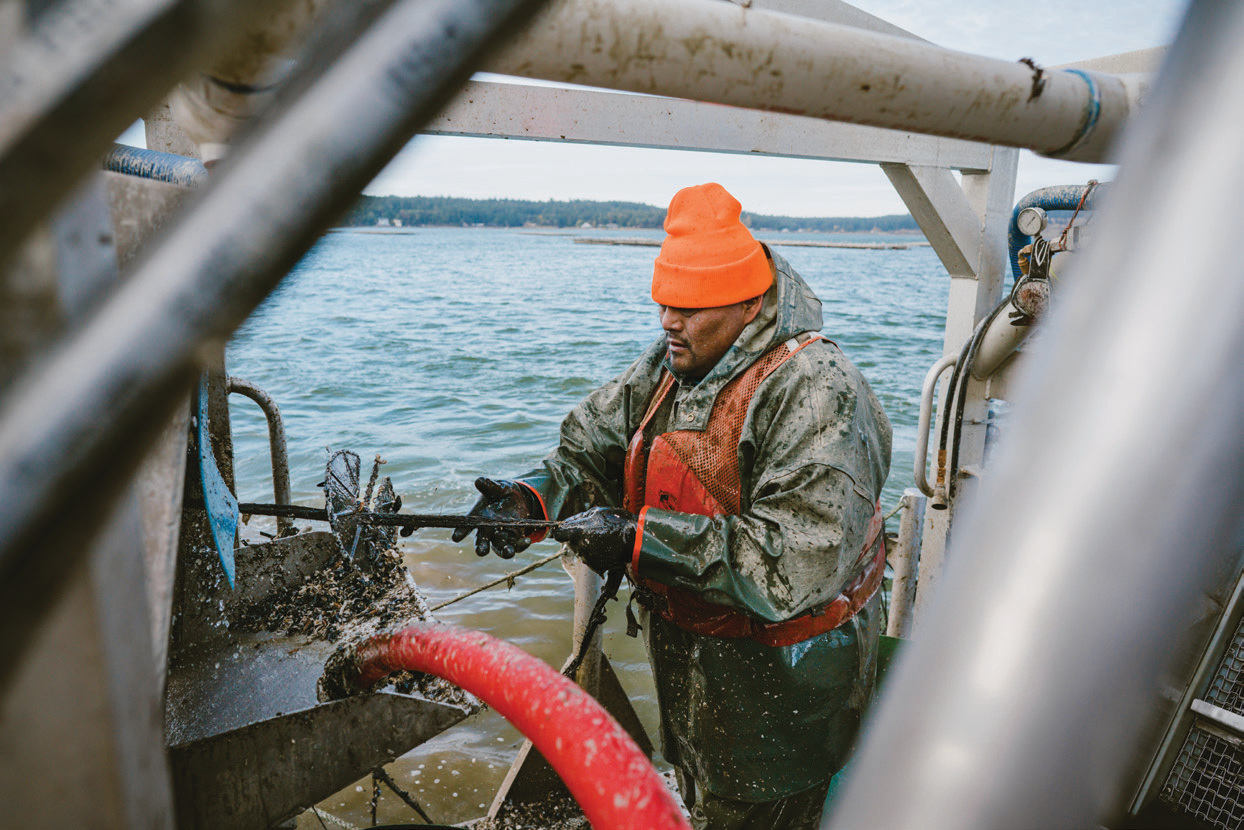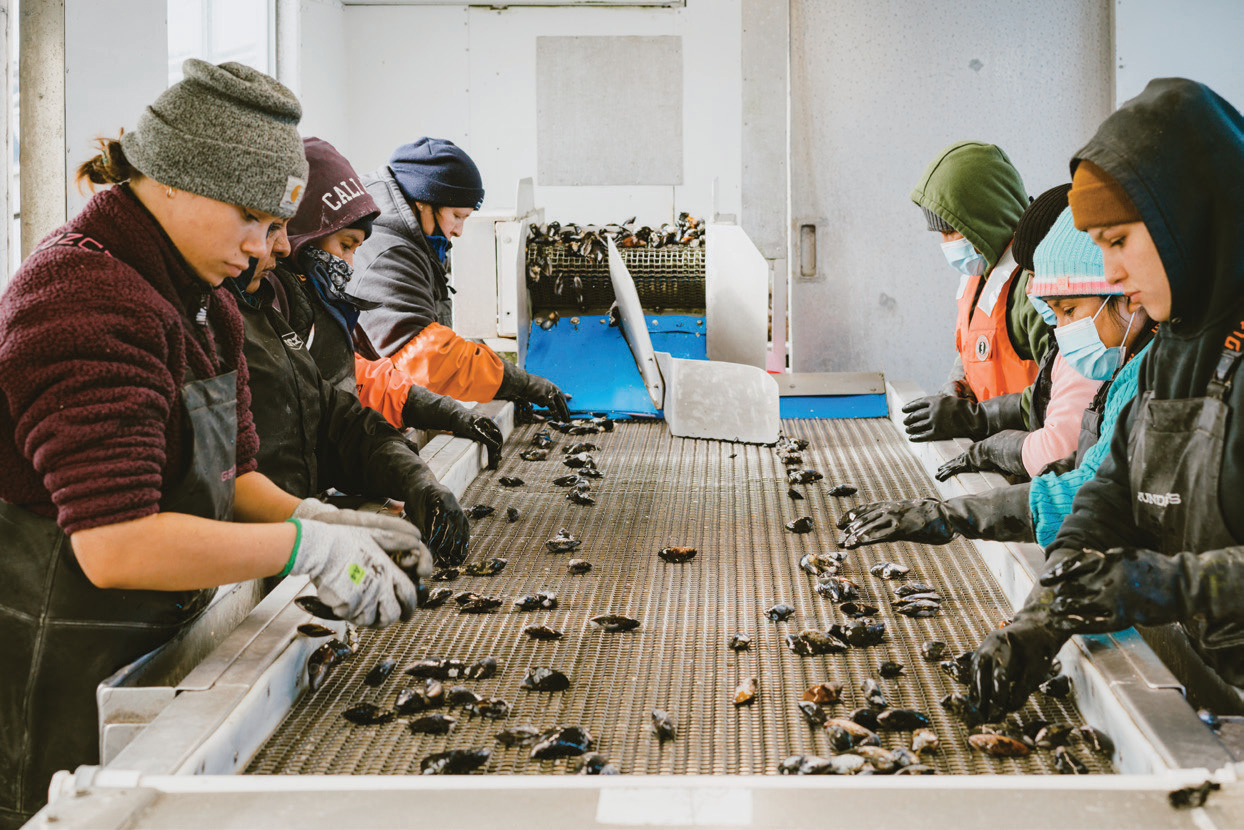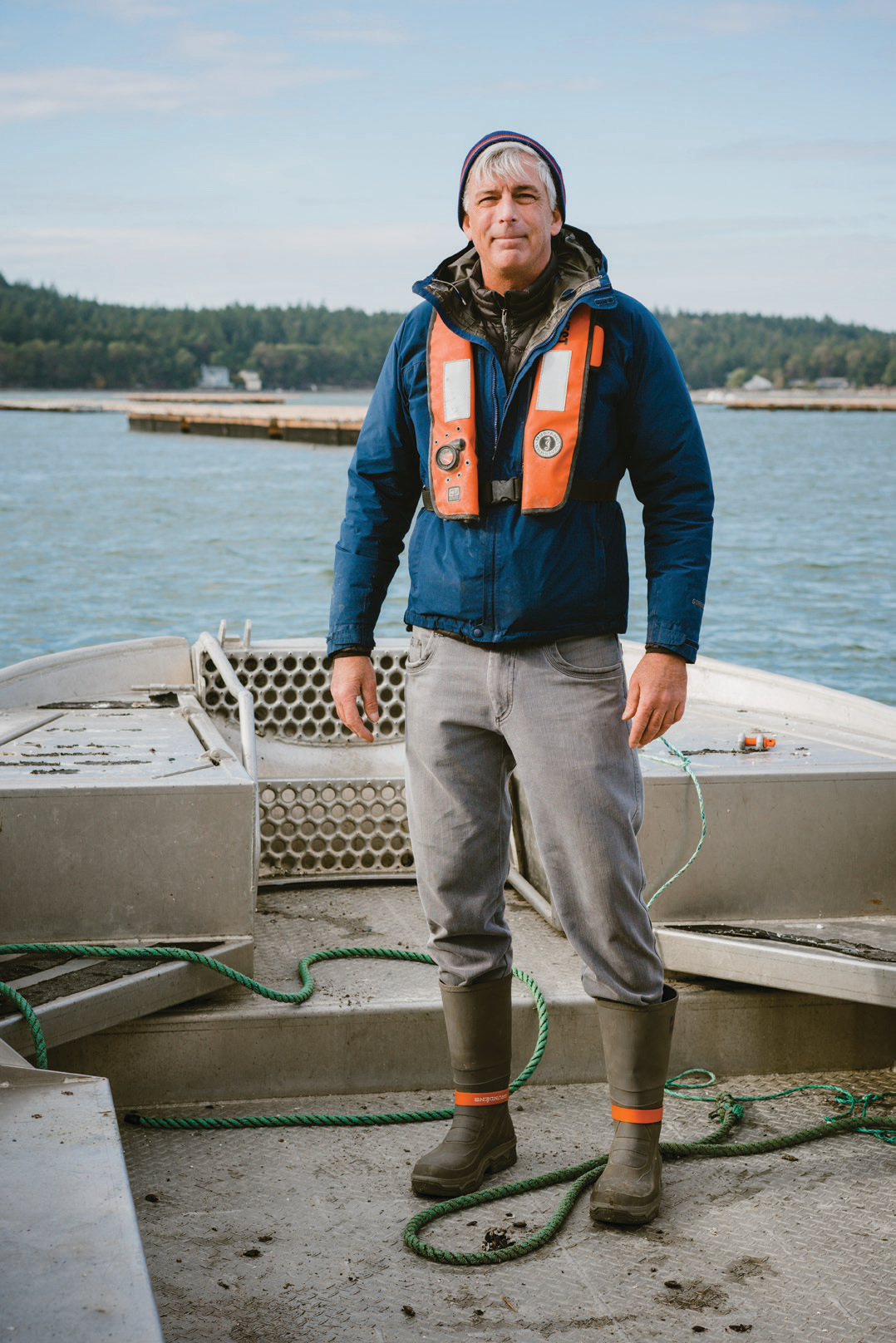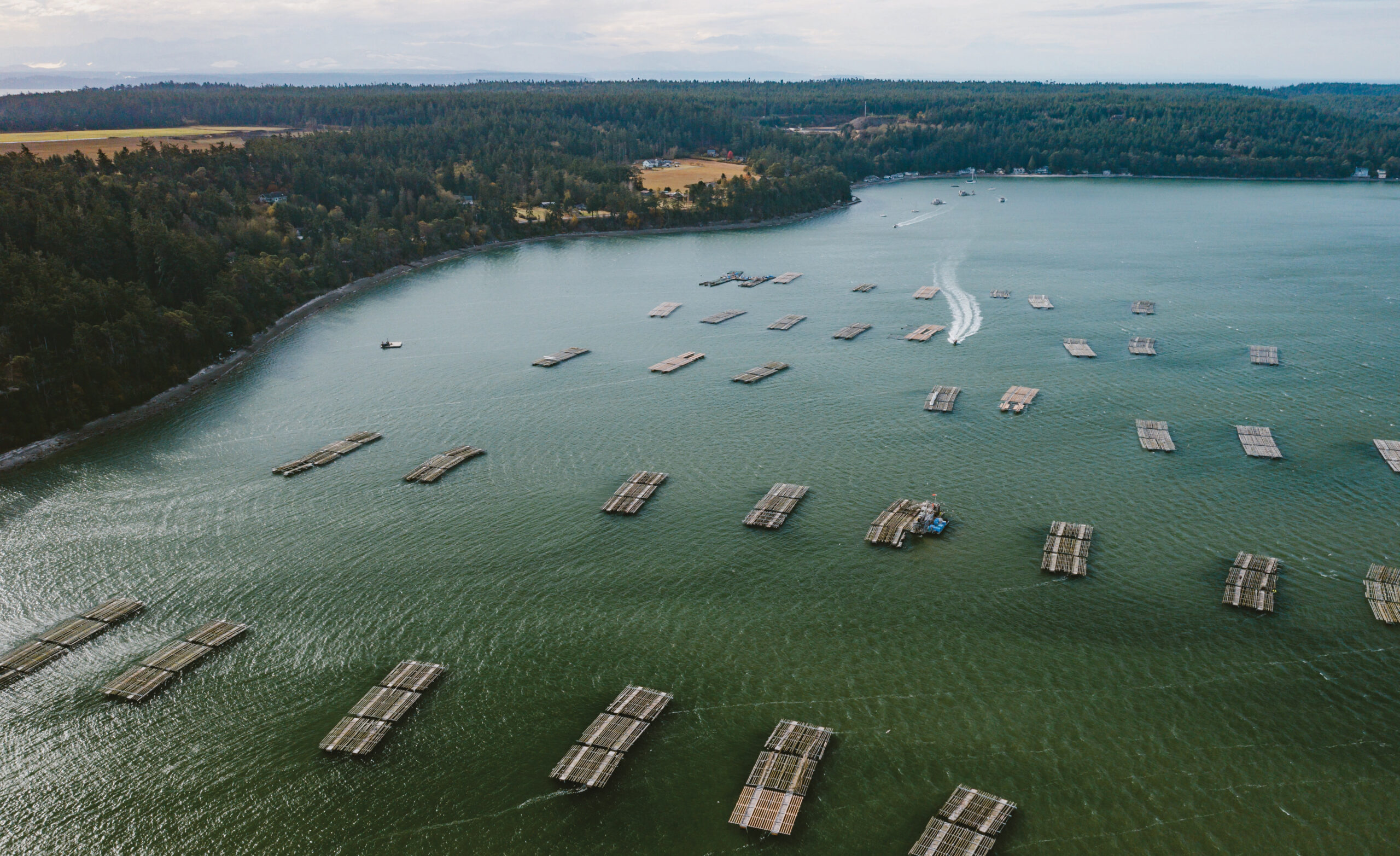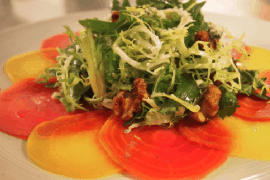Enjoying Penn Cove’s finest offerings
written by Corinne Whiting photography by James Harnois
Since 1975, Whidbey Island’s Penn Cove Shellfish has been in business, making it the country’s oldest and largest commercial mussel farm. Operations Manager Tim Jones explains that, although the product was already a delicacy in Europe and Asia at the time, not many folks in the United States were enjoying mussels just yet. Once French chefs in Seattle discovered they could get the product nearby, however, a mussel craze ensued in the Northwest.
The farm now produces 2.5 million pounds of mussels a year, and, according to Jones, demand is increasing. After all, Penn Cove has the highest density of mussels found naturally in all of Puget Sound. To the east, the mouth of the Skagit River brings in nutrient-rich mountain water. To the west, the Olympic Mountains put Penn Cove in a rain shadow that means more days of sunshine than Seattle or Bellingham. This combination of sun and nutrient-dense water promotes algae growth and allows for the production of both Cove and Mediterranean Mussels.
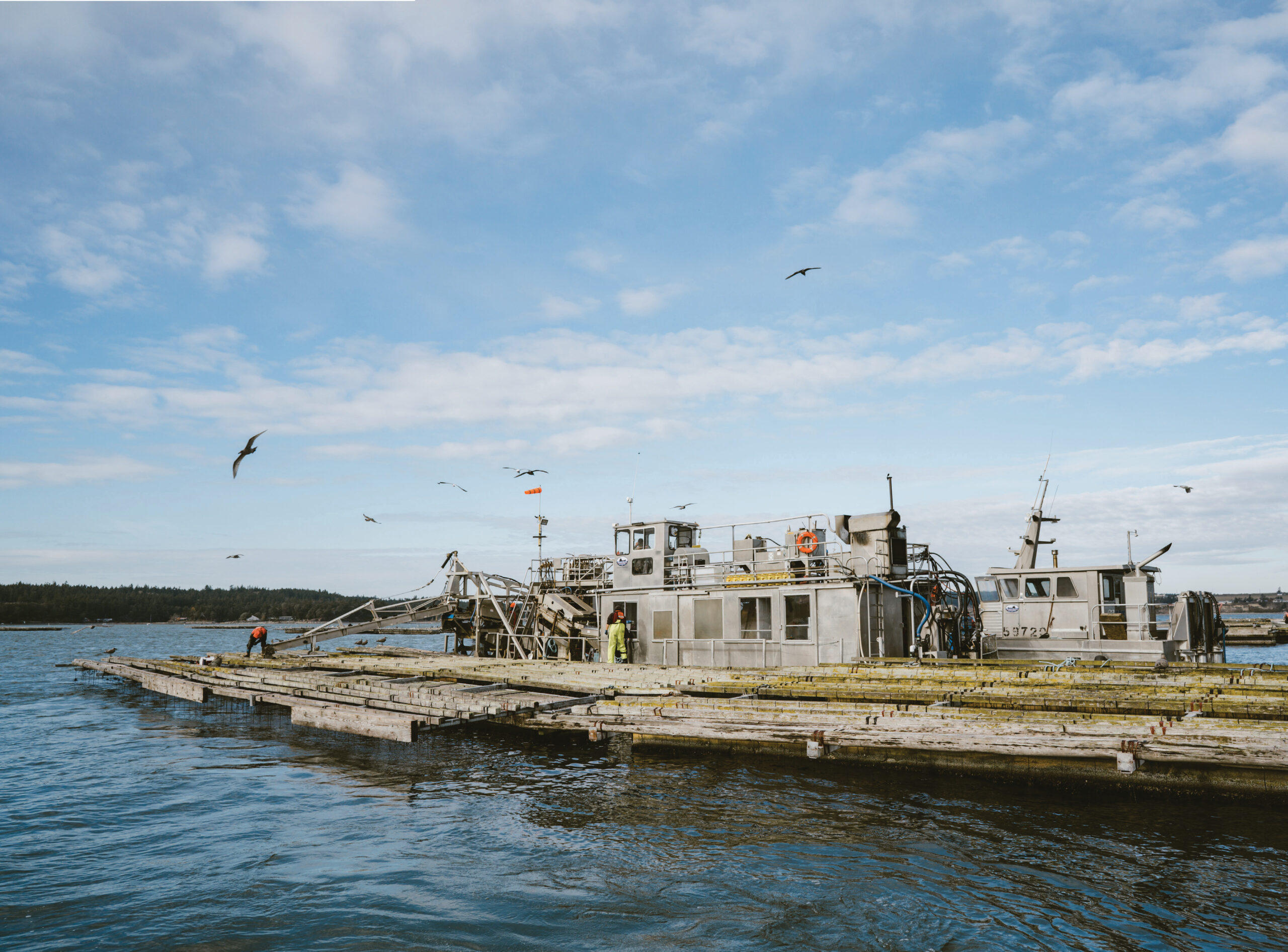
The team works five days a week year-round. They get all the seed from mussels on the beach, and fertilization actually takes place out in water. They have only two weeks to put out all of the 20-foot-long collection lines, and they aim to have them in the water by Tax Day so the larvae have something to attach to. This spring, that process involved 30,000 lines that they hang off rafts using zip ties and a half a brick. “It takes a lot of hands,” Jones said. “We have to do it pretty quick.”
Mussels spawn in May, meaning that the crew begins to collect them naturally in the spring. “The secret recipe for density seems to be 150 mussels per foot,” Jones said.
Mussels take a year to grow, and Jones explained that they always have two years of crops in the water—one that’s harvesting, and one that will be harvested the following year.
Jones has been farming mussels for twenty-plus years, and there are many things he appreciates about his role. “We’re working directly with nature,” he said. “We’re just giving them a place to call home.”
“It’s a sustainable resource that produces an annual harvest, a daily harvest,” he said. “They feed a lot of people.” The process has a very small carbon footprint, too. “The forty-two rafts out there, if pushed together, still only take up about one percent of Penn Cove,” Jones said.
During the first full weekend in March each year, Musselfest brings chowder competitions, guest chefs, live music and a beer garden. It’s also the only time that Penn Cove Shellfish gives public tours, which are conducted on whale-watching boats.
Mussels bring mealtime benefits since they contain many vitamins and minerals (vitamin B12, iron, manganese and selenium, for example), and Jones noted that they’re high in amino acids, too. Better yet? “To buy a pound at the local grocery store doesn’t break the bank. It’s a very affordable protein.” He added with a laugh, “Like a bag of hot dogs, but much healthier!”
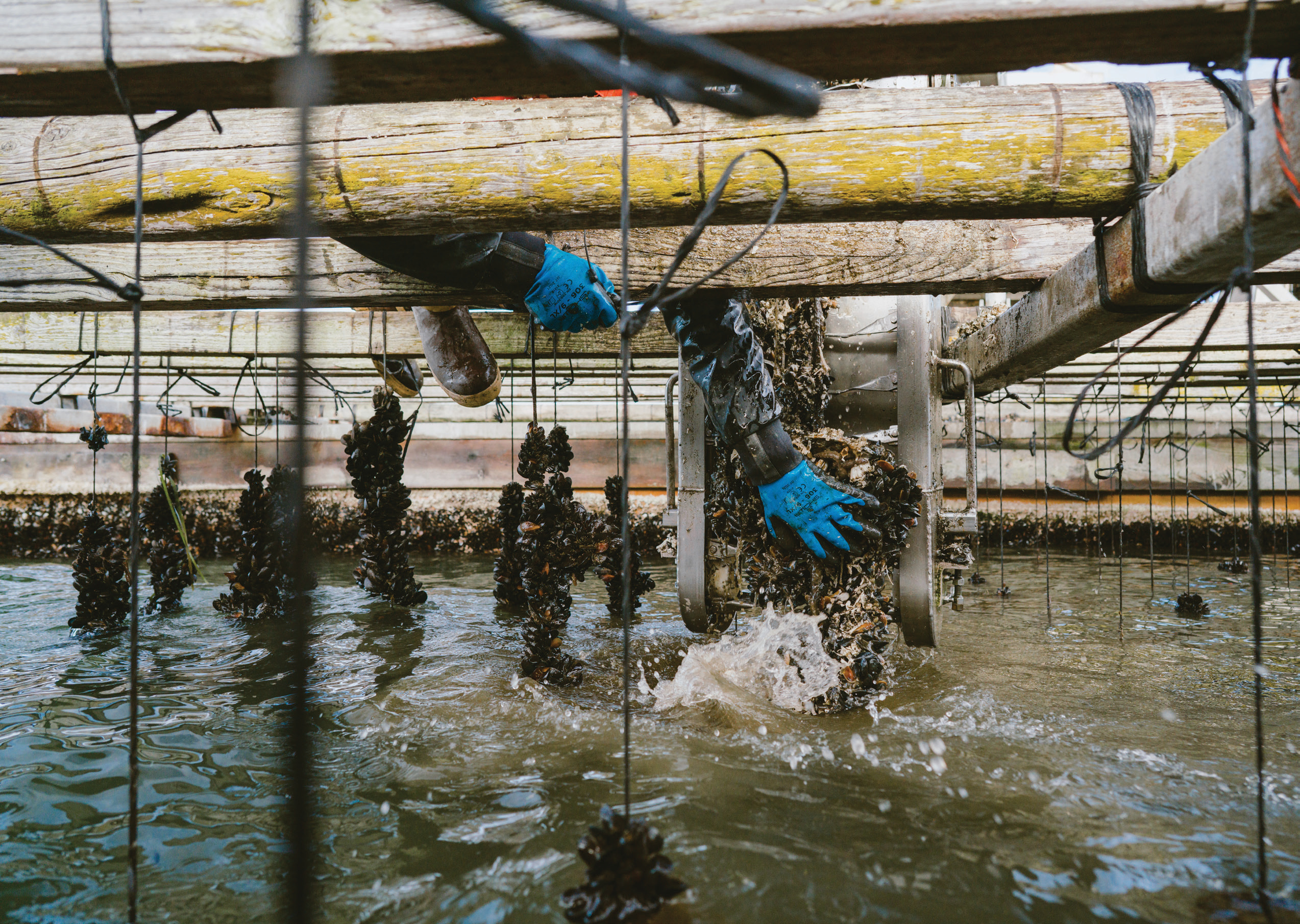
Penn Cove Shellfish produces about 2.5 million pounds of mussels per year.
Mussels lovers can savor Penn Cove products at various Cost-co and Whole Foods locations. And in Whidbey Island’s Coupeville, nearly all restaurants serve their mussels, each presented with its own special style. Jones said cooking with mussels is especially fun since the “flavor sponges” take on the taste of their additional ingredients—whether they’re appearing in curries or other creations.
Eric Anderson, chef and owner of Seattle restaurant Samara, personally enjoys the “mild, lightly sweet and savory flavor” of mussels. At his restaurant in Ballard’s Sunset Hill neighborhood, he has made waves for incorporating seasonal, hyper-local ingredients and cooking everything over live fire using a wood-fired oven and open hearth.
Anderson uses Mediterranean mussels from Taylor Shellfish, and the venue’s culinary team works with Key City Fish Company in Port Townsend, too. When it comes to advising home chefs working with mussels for the first time, Anderson said, “Make sure you’ve pulled the beards and given them a rinse, then be careful not to overcook!”


